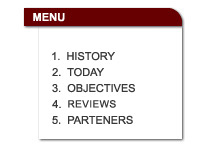

STUDIA THEOLOGIA CATHOLICA
AIMS AND SCOPE
- Including the journal in the prestigious international databases.
- Distributing the publication abroad.
- Increasing the number of articles written by foreign authors.
- Visibility of the journal.
- Increasing the quality of graphics of the printed issues.We believe that theology is a alive science, capable to incorporate the generally human values and to give them an effect plenary and also able to purify themselves from all prejudice and traditionalism; therefore promote - in entirely respect for the revelation, tradition and Magisterium - an open approach of the theological problems, recurrent not at all, able to question the comfortable certainties to the conquest of an maturity in faith.
Studia Universitatis Babeş-Bolyai Theologia Catholica, one of the expressions of the academic efforts of the Faculty of Greek Catholic Theology, aims to promote the research results in the theological field of the professors from the faculty, of some of its collaborators but also students and graduates who are distinguished by their scientific concerns. Given the quality of our collaborators from Romania and abroad, the magazine seeks to be both a fruitful field for national and international dialogue in the field of theological reflection, in the ecumenical spirit. We aim to contribute through our review to the research effort of the national and international academic community.The journal is classified by the Romanian National Council of Scientific Research of Higher Education (CNCSIS) in the B+ Category and by the Romanian National Council of Scientific Research in the C Category.
Open Access: Yes
Publication fees: NoneWhen citing this journal, please use the abbreviation: Studia UBB Theol. Cath.
Receipt of the articles, information about copyright
Submission:
The articles can be sent at the email address studiatheologiacatholica@gmail.com respecting the format and the announced deadline.
Previously published articles are not accepted for publication. Manuscripts cannot be submitted elsewhere for publication while in review for Studia Universitatis Babeş-Bolyai Theologia Catholica, although manuscripts may be deposited on a preprint server. Manuscripts that are derived from papers read at conferences cannot be submitted unless they have been previously published as part of the conference proceedings in a peer-reviewed volume.
The editors’ committee would reject those papers which do not reach the quality level required for an academic journal. The authors will be announced on the acceptance or rejection if their papers and about the suggestions made by the reviewers.The report term of an article, starting with the moment of delivery to reviewers is of roughly two weeks. All papers are reviewed independently at least by two referees, but the authors are entirely responsible for the content of their papers. All published papers will become property of the journal.Issues, Deadlines:
The journal is published half-yearly in June and December.
Collaborators can submit their articles to the editors throughout the year. However, to ensure periodicity, the proposed articles for publication will be evaluated and processed each year after 10 January (for the first issue of the journal) and 10 May (for the last issue).
Prevention and Fight against Plagiarism and other forms of fraudulent conduct
Authors of the journal must be aware and understand that Studia Universitatis Babeș-Bolyai intends to prevent, and also sanctions attempts and acts of plagiarism and other forms of fraudulent conduct, including but not limited to the fabrication and/or falsification of data. Therefore, authors are hereby advised that:
– Plagiarism attempts or other fraudulent actions discovered and documented during the review process (Editorial Office, peer review) may lead to: a) rejection of the manuscript for publication; b) official information of the higher education or research institution of the author’s affiliation; and c) information of the scholarly community and public opinion.
– Upon notification on allegation of plagiarism or other fraudulent actions for any article that has been already published in Studia Universitatis Babeș-Bolyai, and following the thorough verification of the notification, the Editorial Office may take the following steps: a) contact the Index of allegations of plagiarized works in Romania; b) follow the procedure in place for plagiarism attempts or other fraudulent actions discovered and documented during the review process; c) officially inform the higher education or research institution of the author’s affiliation, making available all necessary documents (including the author’s responsible declaration of originality); d) advise the most important international databases about the allegation of plagiarism; and e) publish (on the site, etc.) its official position on the matter. As conceptual and general guidelines on plagiarism, the journal Studia UBB refers to: “What Constitutes Plagiarism?”, in “Harvard Guide to Using Sources”, available here:
https://usingsources.fas.harvard.edu/what-constitutes-plagiarism. See also:
https://researcheracademy.elsevier.com/uploads/
2020-06/RA_HEADT%20Centre%20Webinar%20on%20Plagiarism_FINAL.pdf
Publication Ethics and Publication Malpractice Statement
The Publication Ethics and Malpractice Statement aligns with the recommendations of COPE (Committee on Publication Ethics): Code of Conduct and Best Practice Guidelines for Journal Editors and the Code of Conduct for Journal Publishers.Privacy Statement: The names and email addresses entered in this journal site will be used exclusively for the stated purposes of this journal and will not be made available for any other purpose or to any other party.
©Studia UBB Theologia Catholica. Published by Babeș-Bolyai University.
Copyright info: "Transfer of copyright agreement". When the article is accepted for publication, I, as the author and representative of the coauthors, hereby agree to transfer to Studia Universitatis Babeş-Bolyai Theologia Catholica all rights, including those pertaining to electronic forms and transmissions, under existing copyright laws, except for the following, which the author specifically retain: the right to make further copies of all or part of the published article for my use in classroom teaching; the right to reuse all or part of this material in a review or in a textbook of which I am the author; the right to make copies of the published work for internal distribution within the institution that employs me.Licensed under a Creative Commons Attribution-NonCommercial-NoDerivatives 4.0 International License.
